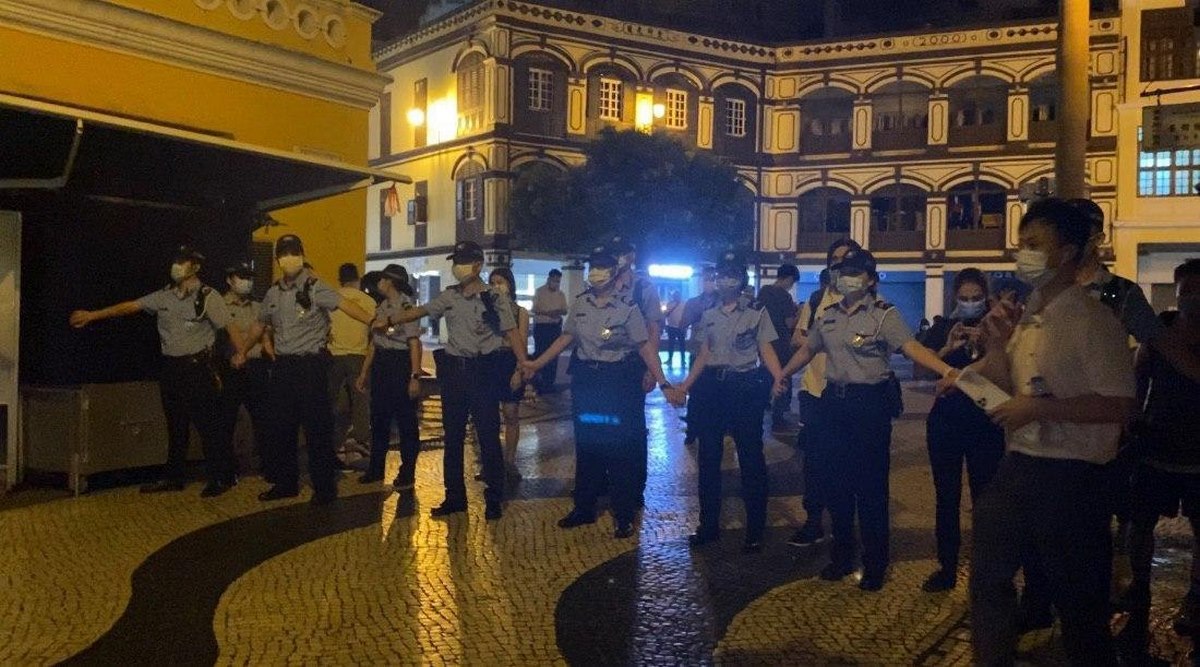
Human Rights Watch (HRW) on Aug. 6 called for the immediate and unconditional release of a former Macau lawmaker following his arrest on “national security” charges. The arrest marked the first time Macau, a Special Administrative Region of China, has invoked its sweeping Law on Safeguarding National Security.
Maya Wang, associate China director at HRW, said, “The arrest…reflects the broadening repression radiating from China to Hong Kong and Macao under Chinese leader Xi Jinping.”
On July 30, former lawmaker and pro-democracy activist Au Kam San was arrested after authorities accused him of violating Article 13 of the national security law, which carries a maximum penalty of 10 years imprisonment and criminalizes the establishment of “links with organizations or groups” outside Macau to “conduct activities endangering national security.”
This presumably refers to Au’s work with the Macau Union of Democratic Development, which for years organized annual commemorations of the 1989 Tiananmen Square massacre. Members have repeatedly met with threats and harassment from the authorities.
The wording of the national security statute is notably ambiguous and does not provide a threshold as to what actions constitute “national security” threats, making it susceptible to abuse. Under a textualist lens, a panel of judges could theoretically find that mere criticism of the government triggers the statute. Rights experts warn that authorities may weaponize the law to silence any and all dissent.
Hong Kong and Macau enjoy a high degree of autonomy in certain administrative affairs under the “one country, two systems” framework, conceived by Chinese leader Deng Xiaoping in the 1980s to preserve these cities’ distinct status as former British and Portuguese colonies, respectively. However, sovereignty ultimately remains with China. As the 41st anniversary of the December 1984 Sino-British Joint Declaration approaches—a treaty that outlined China’s obligations ahead of the 1997 handover of Hong Kong—the territory has experienced one of the sharpest declines in freedom of expression in the world, dropping 49 points into the “crisis category,” according to the Article 19 Global Expression Report 2025.
Similar guarantees were pledged for Macau in the 1987 Sino-Portuguese Joint Declaration, setting terms for the 1999 handover. But these have also significantly eroded, with the territory’s judiciary exacerbating the anti-democratic climate. In 2021, Macao’s courts upheld a government ban on the annual Tiananmen Massacre vigil, ruling that political slogans violated the Chinese Constitution by inciting the public to “overthrow the existing political system.”
The right to freedom of expression is protected by Article 19 of the International Covenant on Civil & Political Rights (ICCPR). China is a signatory to the ICCPR, but has yet to ratify it.
From JURIST, Aug. 7. Used with permission.
See our last posts on Macau, the Hong Kong National Security Law, the crackdown on dissent in China, and the legacy of Tiananmen Square.
Image: Macau police block annual Tiananmen vigil, June 2020. Credit: Choi Chi-chio/United Social Press via HKFP




